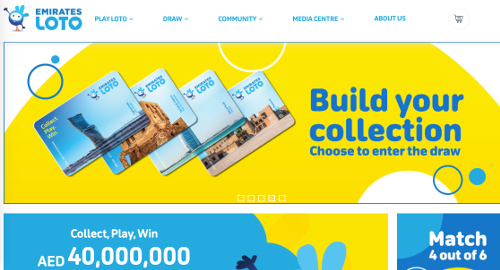 A new United Arab Emirates lottery is offering a record prize while dancing on the edge of religious propriety.
A new United Arab Emirates lottery is offering a record prize while dancing on the edge of religious propriety.
This weekend, Emirates Loto broadcast the UAE’s first official lottery drawing, which featured Lebanese television host Wissam Breidy and Indian actress/model Aishwarya Ajit. The grand prize for matching all six numbers was AED35m (US$9.5m) but the closest anyone got was one player who matched five numbers for an AED350k prize.
The jackpot for next week’s draw now increases to AED40m and, should no one match all six numbers, will continue to increase until its maximum cap of AED50m. There are other lotteries in the UAE but they offer much smaller prizes and tickets can only be purchased via the Duty Free areas of international airports, with the result that the winners are all foreigners.
The Qur’an makes it clear that gambling is strictly forbidden (haram) but the lottery organizers managed to obtain a religious order (fatwa) issued by the General Authority of Islamic Affairs & Endowments in Abu Dhabi exempting their product from this prohibition. The fatwa was secured by ensuring that there is an exchange of value in the transaction.
This was accomplished by the customer purchasing ‘collectable cards’ that feature images of iconic UAE sites. The cards cost AED35 and can be purchased locally through participating retailers or via the Emirates Loto website and app, which also allows international players aged 18 or older to play and win.
Customers who wish to participate in the lottery must register their cards (for no additional charge) with the Emirates Loto site/app, after which they can select their own six numbers or have the computer randomly select a six-number combo.
The lottery’s first draw was supposed to take place in late March but was postponed due to the UAE government’s social distancing requirements. The next draw will occur in the holy month of Ramadan, which will push the time of the drawing to 10pm to conform to religious rules.
Emirates Loto boss Paul Sebestyen, a lottery veteran in markets ranging from South Carolina to South Korea, told local media outlet The National that the lottery would “change lives” through donations to “charity associations and other organizations that assist people in need.” These groups have apparently yet to be identified, but Sebestyen says his group is in negotiations with various charities.
Not everyone is impressed by the new product, with Spanish media outlet El Mundo quoting a former JPMorgan Islamic division chief saying he wasn’t impressed by “commercial gymnastics exercises to gain Sharia approval,” although he acknowledged that “prize draws … have been used by Islamic banks in the Middle East for more than a decade.”
Emirates Loto’s website features a list of ‘sanctioned’ countries, whose residents are ineligible to participate in the drawings. It’s a pretty odd list, including Afghanistan, Cuba, Israel, North Korea, Somalia, Syria, Ukraine and “Al-Qaida and the Taliban.” Must really tick the guys off in the Islamic State that ISIS failed to make the naughty list.